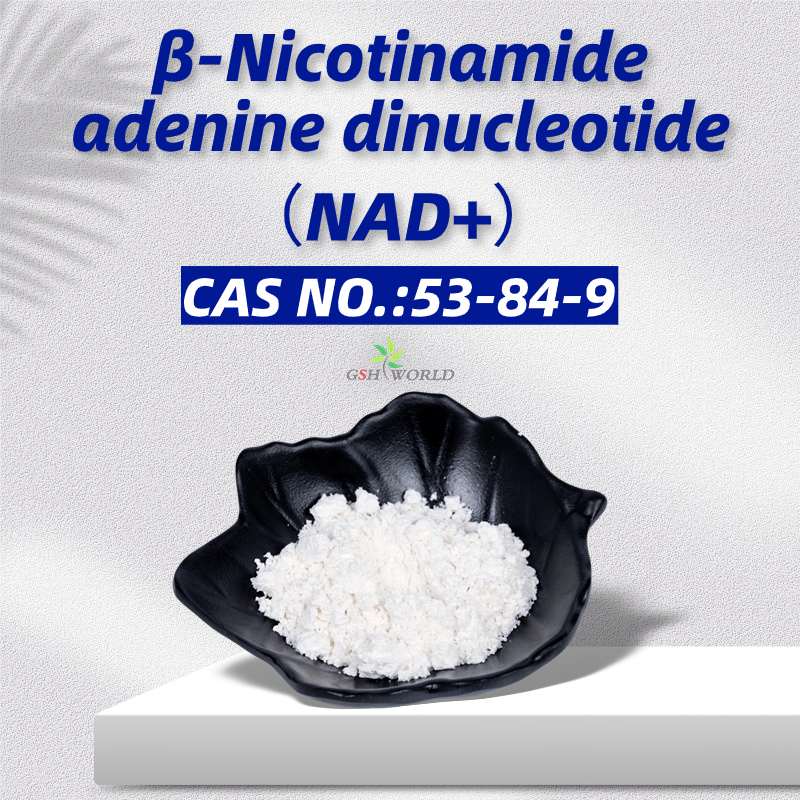NMN may prevent colon cancer by reducing intestinal inflammation, inhibiting oxidative stress, and enhancing the activity of NK cells and T cells.
Most of the studies are limited to mouse models, and more clinical studies are needed to verify them.
NMN may play an important role in the prevention and treatment of colorectal cancer.
Colorectal cancer (including colon and rectum) is the third leading cause of cancer-related death worldwide, and the incidence and mortality of colorectal cancer are increasing year by year as the global population ages.
The development of new prevention and treatment methods has become an important direction of cancer research today.
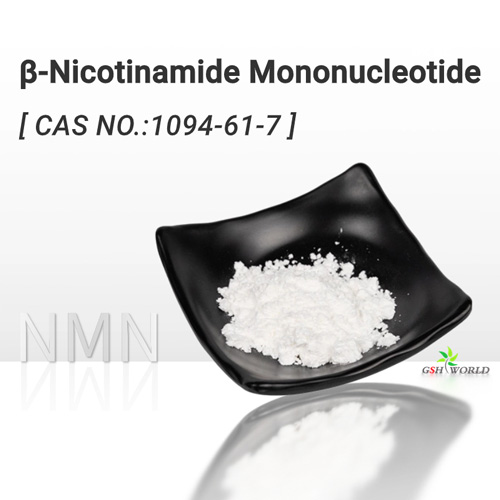
Recently, scientists have found that NMN (nicotinamide mononucleotide), a precursor of NAD+, may be effective in preventing the development of colon cancer.
To verify the effect of NMN on colon cancer, the researchers conducted an experiment using mice to simulate the occurrence of colon cancer.
In experiments, they injected mice with pyrimethylene, a chemical known to cause cancer, while adding sodium dextran sulfate (DSS) to the mice’s drinking water to induce colon inflammation and tumor growth.
In the experimental group, mice received injections of NMN, while mice in the control group did not receive Nicotinamide Mononucleotide.
The results showed that mice that received NMN injections had significantly fewer tumors in their colons compared to mice that did not receive NMN.
This finding is encouraging and suggests that NMN may have some potential for preventing colon cancer.
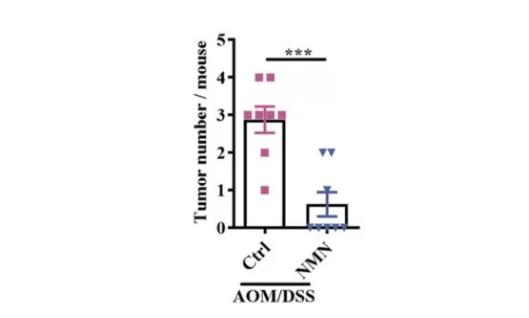
The occurrence of colorectal cancer is closely related to chronic intestinal inflammation.
Long-term intestinal inflammation not only damages the intestinal barrier, but can also trigger oxidative stress, which in turn causes DNA damage and genetic mutations that may eventually lead to cancer.
Reducing intestinal inflammation and oxidative stress is an important strategy to prevent colon cancer.
In the study, mice that were not treated with NMN had significantly elevated markers associated with oxidative stress and inflammation in colon tissue.
This suggests that NMN is able to reduce intestinal inflammation and reduce the level of oxidative stress, thereby protecting the gut from DNA damage.
Through this mechanism, Nicotinamide Mononucleotide may effectively prevent the occurrence of colon cancer.
Relationship between NMN and immune system
In addition to reducing inflammation and oxidative stress, NMN may further protect against colon cancer by boosting the immune system.
Our immune system, especially natural killer cells (NK cells) and T cells, play a crucial role in fighting cancer.
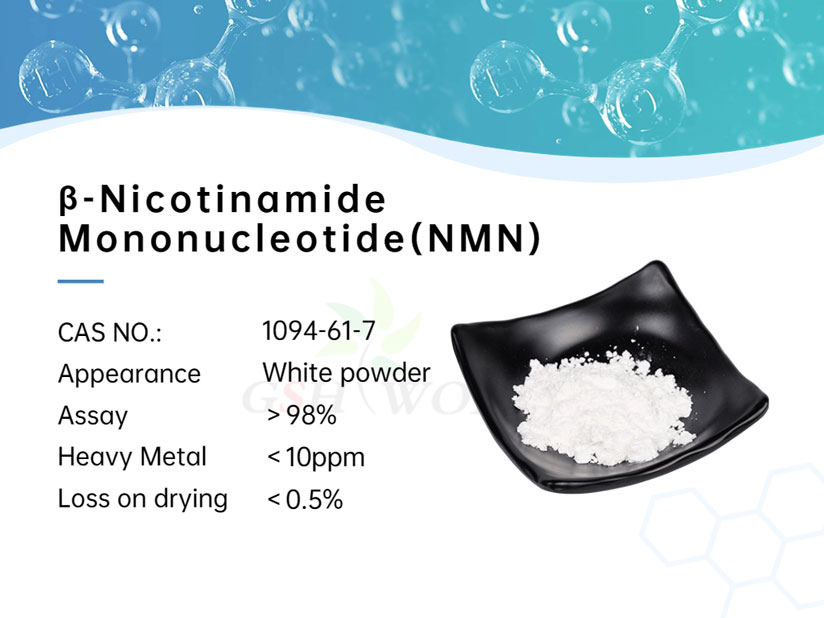
NK cells are able to directly recognize and kill cancer cells, while T cells help identify and remove cancer cells.
With the increase of age, the number and activity of NK cells and T cells gradually decline, and the anti-cancer ability of the immune system weakened, which also an important reason for the increased risk of cancer in the older people population.
Studies have found that NMN can significantly increase the activity of NK cells and enhance the anti-cancer ability of the immune system.
NMN is also able to improve T cell function and prevent immune senescence, thereby further reducing the risk of tumorigenesis.
These findings suggest that NMN not only protects against colon cancer through anti-inflammatory and antioxidant effects, but may also further inhibit tumor growth by boosting the immune response.
Multiple regulation of immune cells by NMN
The immune system is not just made up of NK cells and T cells.
Macrophages are also part of the immune system, and they normally maintain good health by removing pathogens and waste from the body.
In the cancer microenvironment, certain types of macrophages activated to secrete pro-inflammatory factors that promote tumor growth and metastasis.
Encouragingly, the study also found that NMN was able to reduce the overactivation of macrophages, thereby inhibiting the chronic inflammatory response caused by it, and further stopping the progression of cancer.
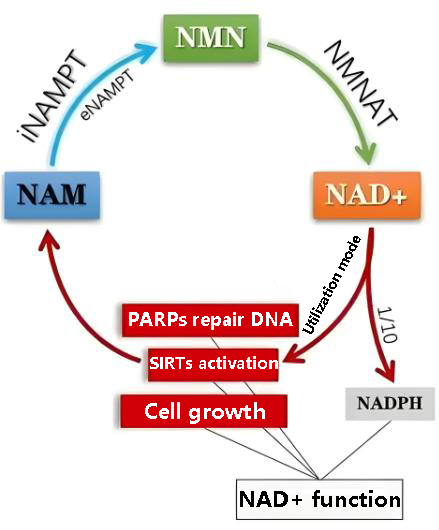
From the current study results, NMN appears to potentially prevent the development of colon cancer by reducing intestinal inflammation, inhibiting oxidative stress, and enhancing immune cell function.
Most of these experiments have limited to mouse models, and more clinical studies needed to confirm whether similar effects can achieved in humans.
Nevertheless, these preliminary findings provide valuable clues for the application of NMN as a means of cancer prevention, and also provide new ideas for future cancer treatment.
Colorectal cancer is an important disease that threatens global health, and it is particularly important to prevent the occurrence of colorectal cancer by improving lifestyle and diet habits, as well as finding effective preventive compounds.
As a substance that can increase the level of NAD+, NMN has been widely concerned in recent years due to its role in anti-aging and improving energy metabolism.
The latest findings further suggest that NMN may help prevent colon cancer by reducing intestinal inflammation, reducing oxidative stress, and boosting the immune system.
Although these studies encouraging, more clinical data needed to confirm the safety and efficacy of NMN for clinical use in colon cancer.




